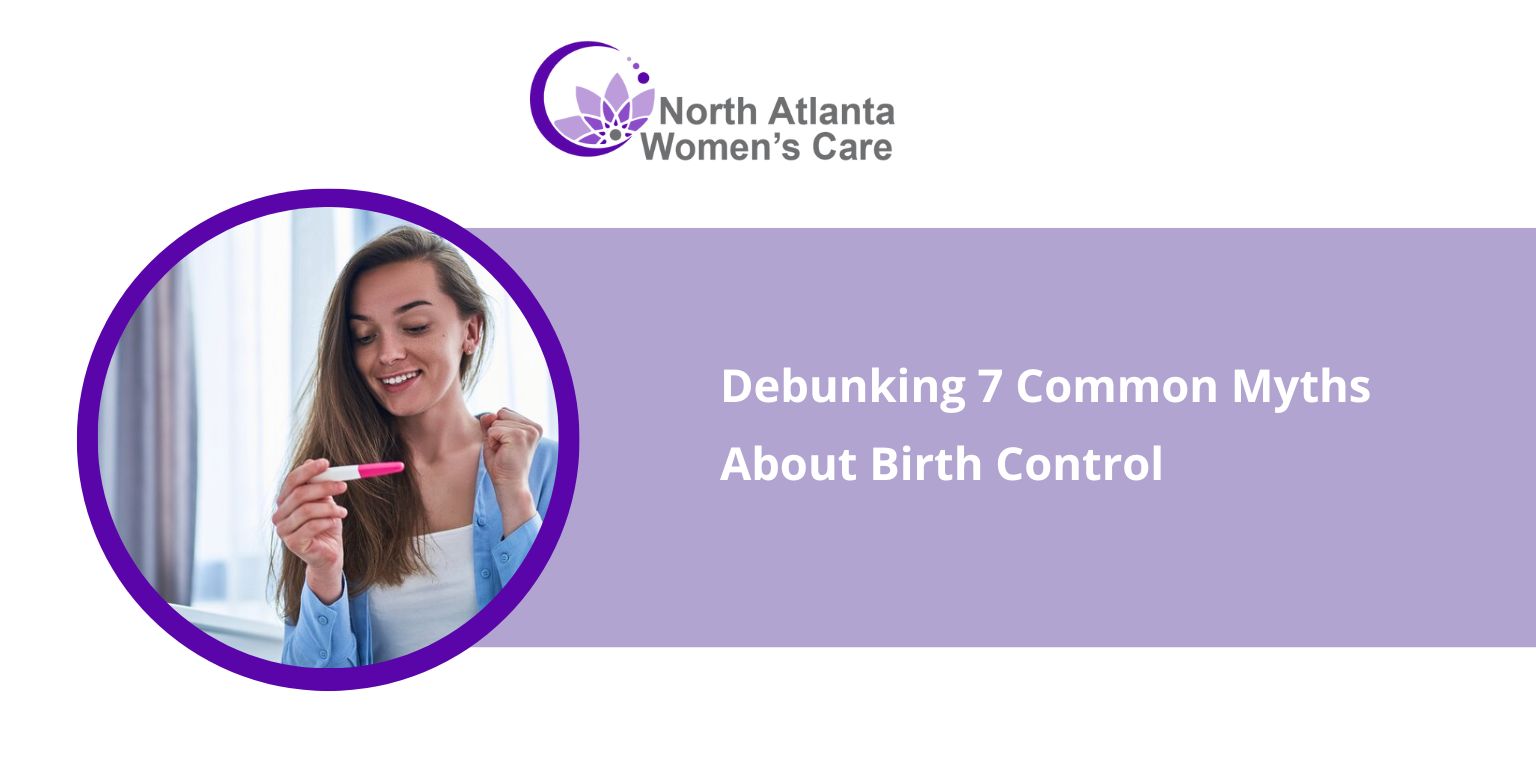Debunking 7 Common Myths About Birth Control

In today’s world, access to accurate information about birth control is more crucial than ever. However, misinformation still plays a significant role in shaping contraceptive choices, leading to confusion and hesitation among individuals seeking to manage their reproductive health. Understanding the facts about birth control is essential for making informed choices that align with personal health and lifestyle needs. This blog aims to clear up seven common myths about birth control, empowering you with accurate knowledge to navigate your family planning journey confidently.
Myth 1: Birth Control Causes Infertility
One of the most pervasive myths about birth control is that it leads to long-term infertility. This misconception often deters individuals from using contraceptives, fearing irreversible impacts on their fertility. However, scientific evidence strongly refutes this claim. Most birth control methods, including the pill, IUDs, and implants, do not affect long-term fertility. In fact, fertility typically returns shortly after discontinuing use. A study found no significant difference in fertility rates between former contraceptive users and those who never used hormonal birth control.
Myth 2: The Pill is the Only Effective Birth Control Option
While the pill remains a popular choice, it is far from the only effective method available. Options such as intrauterine devices (IUDs), implants, patches, vaginal rings, and even natural family planning methods offer diverse ways to prevent pregnancy. For instance, IUDs have an efficacy rate exceeding 99%, making them one of the most reliable methods. The variety ensures that individuals can find a solution tailored to their health needs and lifestyle.
Myth 3: Long-Term Use of Birth Control is Harmful
Concerns about prolonged use of contraceptives often stem from misinformation about side effects. Research consistently demonstrates that long-term use of methods like hormonal pills or IUDs is safe for most people. In fact, some studies suggest additional health benefits, such as reduced risks of ovarian and endometrial cancer. While side effects like irregular bleeding or mood changes may occur initially, these typically subside over time. Consulting a healthcare provider can help address specific concerns and monitor any long-term effects.
Myth 4: Emergency Contraceptives Are the Same as Abortion
Emergency contraception (EC) and abortion pills are fundamentally different. EC, like Plan B or ella, prevents pregnancy by delaying ovulation and must be taken within a specific window after unprotected intercourse. In contrast, abortion pills terminate an established pregnancy. Misunderstanding this distinction not only stigmatizes EC but also deters individuals from using it when needed. Clear communication about how these methods work can dispel this harmful myth.
Myth 5: Condoms Are 100% Effective
While condoms are a highly effective barrier method, they are not foolproof. Their effectiveness depends on consistent and correct use. Real-world scenarios, such as improper storage or incorrect application, can reduce their efficacy to around 87%. Combining condoms with another method, like a spermicide or hormonal contraceptive, can significantly improve protection against both pregnancy and sexually transmitted infections (STIs).
Myth 6: Hormonal Birth Control Causes Significant Weight Gain
The belief that hormonal contraceptives cause substantial weight gain is one of the most persistent myths. However, research shows no conclusive evidence linking birth control to major weight changes. Some individuals may experience temporary fluid retention or changes in appetite, but these effects are generally mild and short-lived. Maintaining a balanced diet and active lifestyle can further mitigate any potential concerns.
Myth 7: Birth Control is Only for Preventing Pregnancy
While pregnancy prevention is the primary purpose of contraceptives, they offer a range of additional benefits. Hormonal methods can regulate menstrual cycles, reduce heavy bleeding, alleviate symptoms of polycystic ovary syndrome (PCOS), and manage acne. Many individuals use birth control solely for these therapeutic effects, underscoring its versatility in addressing broader health concerns.
How to Address Misconceptions About Birth Control
Misinformation about contraceptives can lead to unnecessary fear and hesitation. Here’s how you can combat it:
- Consult Healthcare Professionals: Seek advice from doctors or certified reproductive health counselors who can provide personalized recommendations based on your medical history and goals.
- Engage in Open Conversations: Talking with partners, friends, and family can help normalize discussions about birth control and dismantle taboos.
Conclusion
By debunking these seven myths, we hope to empower you with accurate knowledge to make informed decisions about your reproductive health. Whether you’re exploring options for the first time or considering a change, understanding the facts is crucial to finding the method that works best for you.
Take Care of Your Reproductive Health With Our Expert Guidance
Addressing birth control misconceptions is essential to avoid unnecessary fears and confusion. By recognizing the truth behind common birth control myths and clarifying misconceptions about contraceptives, you can take control of your reproductive health confidently.
Take the first step toward clarity and confidence with us at North Atlanta Women's Care. Contact us today to consult with our compassionate experts.
Comments are closed

